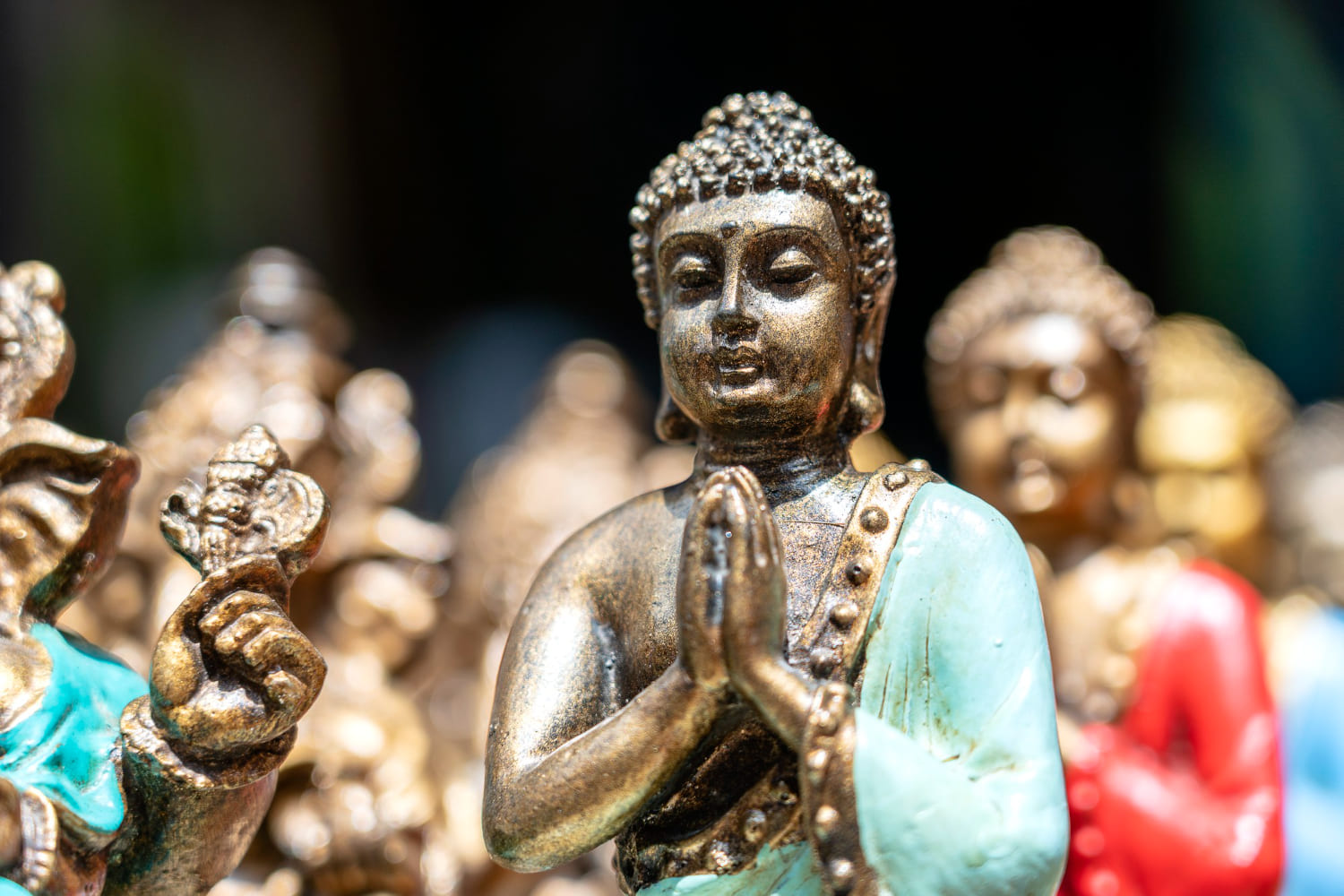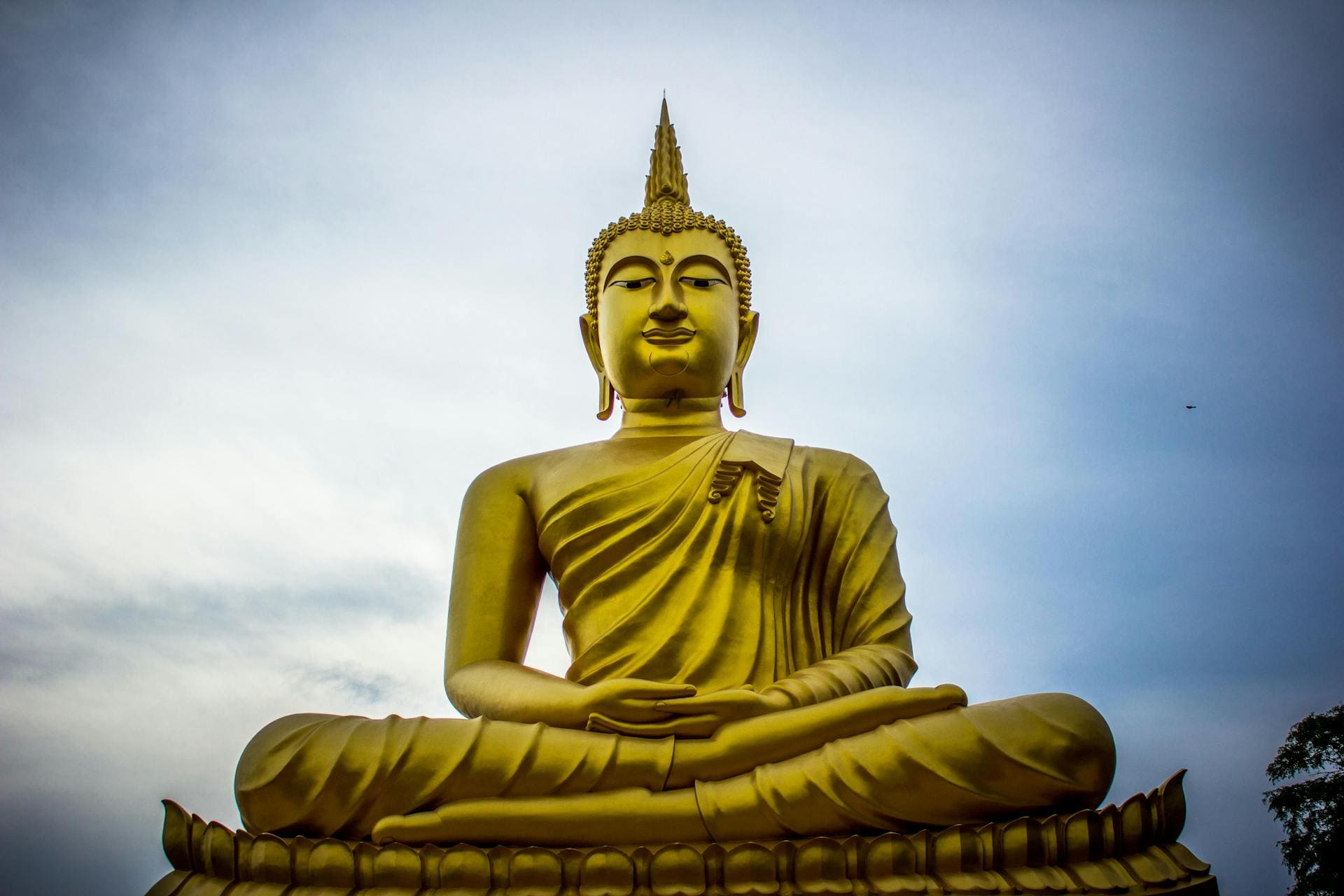Buddhism is a religion and philosophy that originated in ancient India and is now practiced by millions of people around the world.
One of the key principles of Buddhism is the idea of mindfulness, which involves being aware of one’s thoughts, emotions, and actions in the present moment.
Another important aspect of Buddhism is the practice of meditation, which is used to cultivate inner peace and wisdom.
In addition to mindfulness and meditation, many Buddhists also follow a specific diet that is designed to promote physical and spiritual health.
The Buddhist diet is based on the idea of ahimsa, which means non-harming or non-violence. This principle is applied to food by avoiding the consumption of meat, fish, and other animal products that involve the killing or harming of living beings.
Instead, Buddhists are encouraged to eat a diet that is rich in fruits, vegetables, whole grains, legumes, nuts, and seeds. This type of diet is known as a lacto-vegetarian diet, which allows for the consumption of dairy products such as milk, cheese, and yogurt.
In this article, we will explore the full list of foods that are allowed on the Buddhist diet and provide a comprehensive guide to help you get started.
Basic Principles of the Buddhist Diet
Buddhism is a religion that emphasizes mindfulness, compassion, and non-violence. The Buddhist diet is based on these principles and encourages followers to consume foods that are healthy, natural, and compassionate.
Here are some basic principles of the Buddhist diet:
- Plant-based: The Buddhist diet emphasizes the consumption of plant-based foods such as fruits, vegetables, whole grains, legumes, and nuts. Buddhists believe that consuming animal products is not in line with their principles of non-violence and compassion.
- Whole, unprocessed foods: It is recommended to focus on whole, unprocessed foods as much as possible. This means avoiding foods that are highly processed, refined, or contain artificial ingredients.
- Moderation: Buddhists believe in the principle of moderation and avoiding extremes. This means consuming foods in moderation and avoiding overeating or undereating.
- Avoidance of alcohol and other intoxicants: The Buddhist diet encourages the avoidance of alcohol and other intoxicants as they can cloud the mind and inhibit mindfulness and compassion.
- Mindful eating: Buddhists believe in the importance of mindful eating, which involves being present and aware while eating. This means avoiding distractions such as television or electronic devices while eating and taking time to savor and appreciate each bite.
Overall, the Buddhist diet is focused on consuming foods that are healthy, natural, and compassionate. By following these principles, Buddhists aim to cultivate mindfulness, compassion, and non-violence in their daily lives.
Foods Allowed in the Buddhist Diet
The Buddhist diet is largely based on plant-based foods, and it is recommended that individuals who follow this diet consume a variety of fruits, vegetables, whole grains, legumes, nuts, and seeds.
Here are some specific examples of foods that are allowed in the Buddhist diet:
- Fruits: Apples, bananas, berries, oranges, grapes, pears, etc.
- Vegetables: Leafy greens, broccoli, carrots, tomatoes, cucumbers, bell peppers, etc.
- Whole grains: Brown rice, quinoa, bulgur, barley, millet, etc.
- Legumes: Lentils, chickpeas, black beans, kidney beans, etc.
- Nuts and seeds: Almonds, walnuts, sunflower seeds, pumpkin seeds, etc.
- Dairy: Some Buddhist practitioners consume dairy products, but it is important to note that this is not a requirement of the diet.
It is important to note that while some Buddhist practitioners may consume limited amounts of animal products such as dairy, meat, and fish, the majority of the diet is plant-based.
Additionally, many Buddhists adhere to a lacto-vegetarian diet, which excludes meat, fish, and eggs but allows for the consumption of dairy products.
Overall, the Buddhist diet emphasizes the consumption of whole, unprocessed foods and encourages individuals to consume a variety of nutrient-dense plant-based foods to support their physical and spiritual well-being.
Foods Not Allowed in the Buddhist Diet
The Buddhist diet is primarily a lacto-vegetarian diet, which means it encourages the consumption of plant-based foods while avoiding animal products.
The following are some of the foods that are not allowed in the Buddhist diet:
- Meat: Beef, pork, lamb, poultry, and game meats are not allowed in the Buddhist diet. Buddhists believe that taking the life of an animal is a violation of the First Precept, which is to abstain from killing living beings.
- Fish and Seafood: Fish and seafood such as salmon, tuna, shrimp, and lobster are also not allowed in the Buddhist diet. Although some Buddhists may consume fish, the general belief is that fish are also living beings and should not be killed for food.
- Dairy Products: Milk, cheese, butter, and other dairy products are not allowed in the Buddhist diet. However, some Buddhists may consume dairy products that are produced without harming the animal, such as milk from cows that are not killed for meat.
- Eggs: Eggs are also not allowed in the Buddhist diet, as they are considered to be the potential source of life.
It is important to note that the Buddhist diet is not a strict set of rules, and there may be variations in what different individuals or communities choose to consume.
Additionally, some Buddhists may choose to consume meat or fish under certain circumstances, such as when it is offered as a gift or when it is necessary for their health.
However, the general principle of the Buddhist diet is to promote compassion and non-harming towards all living beings, and to cultivate mindfulness and awareness in one’s food choices.
Buddhist Fasting Practices
Buddhist fasting practices are rooted in the principles of mindfulness and self-discipline. Fasting is a way to purify the mind and body and to cultivate inner peace and spiritual growth.
There are several fasting practices in Buddhism, ranging from complete abstinence from food to partial fasting.
One of the most common fasting practices in Buddhism is the observance of the Uposatha days, which are based on the lunar calendar and occur twice a month.
On these days, Buddhists abstain from eating solid food after noon and only consume liquids such as water, tea, and fruit juice. This practice is known as the “Eight Precepts” and is observed by laypeople as well as monastics.
Another fasting practice in Buddhism is the “Threefold Fast,” which involves abstaining from food, speech, and physical actions for a period of time. This practice is typically observed by monastics during the rainy season retreat, which lasts for three months.
The Threefold Fast is considered a way to deepen one’s meditation practice and cultivate self-awareness.
Finally, some Buddhists practice intermittent fasting as a way to promote health and well-being. This involves restricting food intake to a specific window of time each day or week, such as only eating during an eight-hour period each day or fasting for one day a week.
While this practice is not strictly a Buddhist tradition, it aligns with the principles of mindfulness and self-discipline that are central to Buddhist teachings.
Benefits of the Buddhist Diet
The Buddhist diet is a plant-based diet that emphasizes whole foods and minimizes the consumption of animal products.
Here are some of the benefits of following a Buddhist diet:
- Reduced risk of chronic diseases: Plant-based diets are associated with a lower risk of chronic diseases such as heart disease, diabetes, and certain types of cancer. This is because plant-based foods are rich in nutrients and antioxidants that protect the body against cellular damage and inflammation.
- Improved digestion: The high fiber content of plant-based foods helps to promote healthy digestion and regular bowel movements. This can reduce the risk of constipation, bloating, and other digestive issues.
- Weight management: Plant-based diets are often lower in calories and higher in fiber than diets that include a lot of animal products. This can help with weight management and may reduce the risk of obesity.
- Environmental sustainability: The production of animal products has a significant environmental impact, including greenhouse gas emissions, water usage, and deforestation. By reducing the consumption of animal products, a Buddhist diet can help to promote environmental sustainability.
Overall, the Buddhist diet is a healthy and sustainable way of eating that can provide a range of health benefits.
By emphasizing plant-based foods and minimizing the consumption of animal products, this diet can help to promote optimal health and wellbeing.
Conclusion
Following a Buddhist diet can be a great way to improve your health and well-being. This diet emphasizes the consumption of plant-based foods and encourages a mindful approach to eating.
By focusing on whole, unprocessed foods, you can increase your intake of important nutrients and reduce your risk of chronic diseases.
While there are some restrictions on what Buddhists can eat, there are still plenty of delicious and nutritious foods that are allowed. Fruits, vegetables, whole grains, legumes, and nuts are all great options that can be included in a Buddhist diet.
Additionally, there are many creative and delicious recipes available online that can help you make the most of these foods.
It’s important to remember that the Buddhist diet is not a one-size-fits-all approach. Some people may find that they need to make adjustments to this diet to meet their individual needs and preferences.
It’s always a good idea to consult with a healthcare professional before making any significant changes to your diet.
Overall, the Buddhist diet offers a balanced and healthful approach to eating that can benefit people of all ages and backgrounds.
By focusing on whole, nutritious foods and practicing mindfulness in your eating habits, you can support your physical and mental well-being and live a happier, healthier life.







